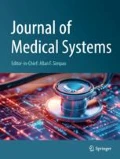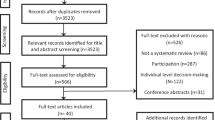Abstract
Decision making in Health sector is affected by a several elements such as economic constraints, political agendas, epidemiologic events, managers’ values and environment … These competing elements create a complex environment for decision making. Research-Based-Decision-Making (RBDM) offers an opportunity to reduce the generated uncertainty and to ensure efficacy and efficiency in health administrations. We assume that RBDM is dependant on decision makers’ behaviour and the identification of the determinants of this behaviour can help to enhance research results utilization in health sector decision making. This paper explores the determinants of RBDM as a personal behaviour among managers and professionals in health administrations in Canada. From the behavioural theories and the existing literature, we build a model measuring “RBDM” as an index based on five items. These items refer to the steps accomplished by a decision maker while developing a decision which is based on evidence. The determinants of RBDM behaviour are identified using data collected from 942 health care decision makers in Canadian health organizations. Linear regression is used to model the behaviour RBDM. Determinants of this behaviour are derived from Triandis Theory and Bandura's construct “self-efficacy.” The results suggest that to improve research use among managers in Canadian governmental health organizations, strategies should focus on enhancing exposition to evidence through facilitating communication networks, partnerships and links between researchers and decision makers, with the key long-term objective of developing a culture that supports and values the contribution that research can make to decision making in governmental health organizations. Nevertheless, depending on the organizational level, determinants of RBDM are different. This difference has to be taken into account if RBDM adoption is desired. Decision makers in Canadian health organizations (CHO) can help to build networks, develop partnerships between professionals locally, regionally and nationally, and also act as change agents in the dissemination and adoption of knowledge and innovations in health services. However, the research focused on knowledge use as a support to decision-making, further research is needed to identify and evaluate effective incentives and strategies to implement so as to enhance RBDM adoption among health decision makers and more theoretical development are to complete in this perspective.

Similar content being viewed by others
References
Hemsley-Brown, J., Using research to support management decision making within the field of education. Manage. Decis. 43(5):691–705, 2005.
Dobbins, M., et al., A framework for the dissemination and utilization of research for health-care policy and practice. Online J. Knowl. Synth. Nurs. 9:7, 2002.
Whynes, D., Policy forum: Health care reform: Towards an evidence-based national health service? Econ. J. 106(439):1702–1712, 1996.
Pfeffer, J., and Sutton, R., Evidence-based management. Decision Making, Harvard Business Review, pp. 63–74, 2006.
Kelemen, M., and Bansal, P., The conventions of management research and their relevance to management practice. Br. J. Manage. 13:97–108, 2002.
Hewison, A., Evidence-based management in the NHS: Is it possible? J. Health Org. Manage. 18(5):336–348, 2004.
Brazil, K., et al., From theory to practice: Improving the impact of health services research. BMC Health Serv. Res. 5(1):1, 2005.
Kiefer, L., et al., Fostering evidence-based decision-making in Canada: examining the need for a Canadian population and public health evidence centre and research network. Can. J. Public Health 96(3):I1–40, following 200, 2005.
Tavakoli, M., Davies, H. T., and Thomson, R., Decision analysis in evidence-based decision making. J. Eval. Clin. Pract. 6(2):111–120, 2000.
Learmonth, M., and Harding, N., Evidence-based management: The very idea. Public Administration 84(2):245–266, 2006.
Dobbins, M., et al., Use of systematic reviews in the development of new provincial public health policies in Ontario. Int. J. Technol. Assess. Health Care 20(4):399–404, 2004.
Estabrooks, C., et al., Decision aids: Are they worth it? A systematic review. J. Health Serv. Res. Policy 6(3):170–182, 2001.
Estabrooks, C.A., Will evidence-based nursing practice make practice perfect? Can. J. Nurs. Res. 30(1):15–36, 1998.
Sibbald, B., and Roland, M., Getting research into practice. J. Eval. Clin. Pract. 3(1):15–21, 1997.
Hayward, R. S., et al., Practice guidelines. What are internists looking for? J. Gen. Intern. Med. 11(3):176–178, 1996.
Nutbeam, D., Improving the fit between research and practice in health promotion: Overcoming structural barriers. Can. J. Public Health 87(Suppl. 2):S18–23, 1996.
Sackett, D. L., et al., Evidence based medicine: What it is and what it isn’t. BMJ 312(7023):71–72, 1996.
Walshe, K., and Rundall, T. G., Evidence-based management: From theory to practice in health care. Milbank Q. 79(3):429–457, IV–V, 2001.
Niedzwiedzka, B. M., Barriers to evidence-based decision making among Polish healthcare managers. Health Serv. Manage. Res. 16(2):106–115, 2003.
Lindstrom, R. R., Evidence-based decision-making in healthcare: Exploring the issues though the lens of complex, adaptive systems theory. Healthc. Pap. 3(3):29–35, 2003; discussion 66–71.
Mitton, C., and Donaldson, C., Health care priority setting: Principles, practice and challenges. Cost. Eff. Resour. Alloc. 2(1):3, 2004.
Dobrow, M. J., et al., The impact of context on evidence utilization: A framework for expert groups developing health policy recommendations. Soc. Sci. Med., 2006.
Landry, R., Amara, N., and Lamari, M., Utilization of social science research knowledge in Canada. Res. Policy 30:333–349, 2001.
Amara, N., Ouimet, M., and Landry, R., New evidence on instrumental, conceptual and symbolic utilization of university research in government agencies. Sci. Commun. 26(1):75–106, 2003.
Holmberg, H., et al., Economic evaluation of screening for prostate cancer: A randomized population based programme during a 10-year period in Sweden. Health Policy 45(2):133–147, 1998.
Fishbein, M., and Ajzen, I., Belief, Attitude, Intention, and Behavior: An Introduction to Theory and Research, Addison-Wesley, Reading, MA, 1975.
Triandis, H., The self and social behavior in differing cultural contexts. Psychol. Rev. 96:506–520, 1989.
Gagnon, M. P., and Godin, G., An adaptation of the theory of interpersonal behaviour to the study of telemedicine adoption by physicians. Int. J. Med. Inform. 71(2–3):103–115, 2003.
Emin, S., Les facteurs déterminants la création d’entreprise par les chercheurs publics: Application des modèles d’intension. Revue de l’Entrepreunariat 3(1):1–19, 2004.
Jeffery, R. W., How can Health Behavior Theory be made more useful for intervention research? Int. J. Behav. Nutr. Phys. Act. 1(1):10, 2004.
Bandura, A., Self-Efficacy: The Exercise of Control, Freeman, New York, WH, 1997.
Bandura, A., and A., L. E., Negative self-efficacy and goal effects revisited. J. Appl. Psychol. 88(1):87–99, 2003.
Beauchamp, M. R., Bray, S. R., et al. Pre-competition imagery, self-efficacy and performance in collegiate golfers. J. Sports Sci. 20(9):697–705, 2002.
Benight, C. C., and Bandura, A., Social cognitive theory of posttraumatic recovery: The role of perceived self-efficacy. Behav. Res. Ther. 42(10):1129–1148, 2004.
Casey, L. M., Oei, T. P., et al., An integrated cognitive model of panic disorder: The role of positive and negative cognitions. Clin. Psychol. Rev. 24(5):529–555, 2004.
De Souza, G. A., Da Silva, A. M., et al., Self-efficacy as a mediator for improvement in oral health clinical indices. Pesqui. Odontol. Bras 16(1):57–62, 2002.
Lavelle, E., Smith, J., et al., The writing approaches of secondary students. Br. J. Educ. Psychol. 72(Pt 3):399–418, 2002.
Oetker-Black, S. L., et al., Preoperative teaching and hysterectomy outcomes. Aorn J. 77(6):1215–1218, 1221–1231, 2003.
Shon, K. H., and Park, S. S., Medication and symptom management education program for the rehabilitation of psychiatric patients in Korea: The effects of promoting schedule on self-efficacy theory. Yonsei. Med. J. 43(5):579–589, 2002.
33(8), 2003.
Caron, F., Godin, G., et al., Evaluation of a theoretically based AIDS/STD peer education program on postponing sexual intercourse and on condom use among adolescents attending high school. Health Educ. Res. 19(2):185–197, 2004.
Helfand, M., Using evidence reports: Progress and challenges in evidence-based decision making. Health Aff. (Millwood) 24(1):123–127, 2005.
Nicklin, W., and Stipich, N., Enhancing skills for evidence-based healthcare leadership: The Executive Training for Research Application (EXTRA) program. Can. J. Nurs. Leadersh 18(3):35–44, 2005.
Mitton, C., and Patten, S., Evidence-based priority-setting: what do the decision-makers think? J. Health Serv. Res. Policy 9(3):146–152, 2004.
Browman, G. P., Snider, A., and Ellis, P., Negotiating for change. The healthcare manager as catalyst for evidence-based practice: Changing the healthcare environment and sharing experience. Healthc. Pap. 3(3):10–22, 2003.
Scott's Government, Index Scott's Government Index, Southam Information Products Group, Don Mills, Ont., 2001.
Ahire, S., and Devaray, S., An empirical comparison of Statistical Construct Validation Approaches. IEEE Trans. Eng. Manage. 48(3):319–329, 2001.
Author information
Authors and Affiliations
Corresponding author
Rights and permissions
About this article
Cite this article
Jbilou, J., Amara, N. & Landry, R. Research-Based-Decision-Making in Canadian Health Organizations: A Behavioural Approach. J Med Syst 31, 185–196 (2007). https://doi.org/10.1007/s10916-007-9054-3
Received:
Accepted:
Published:
Issue Date:
DOI: https://doi.org/10.1007/s10916-007-9054-3




